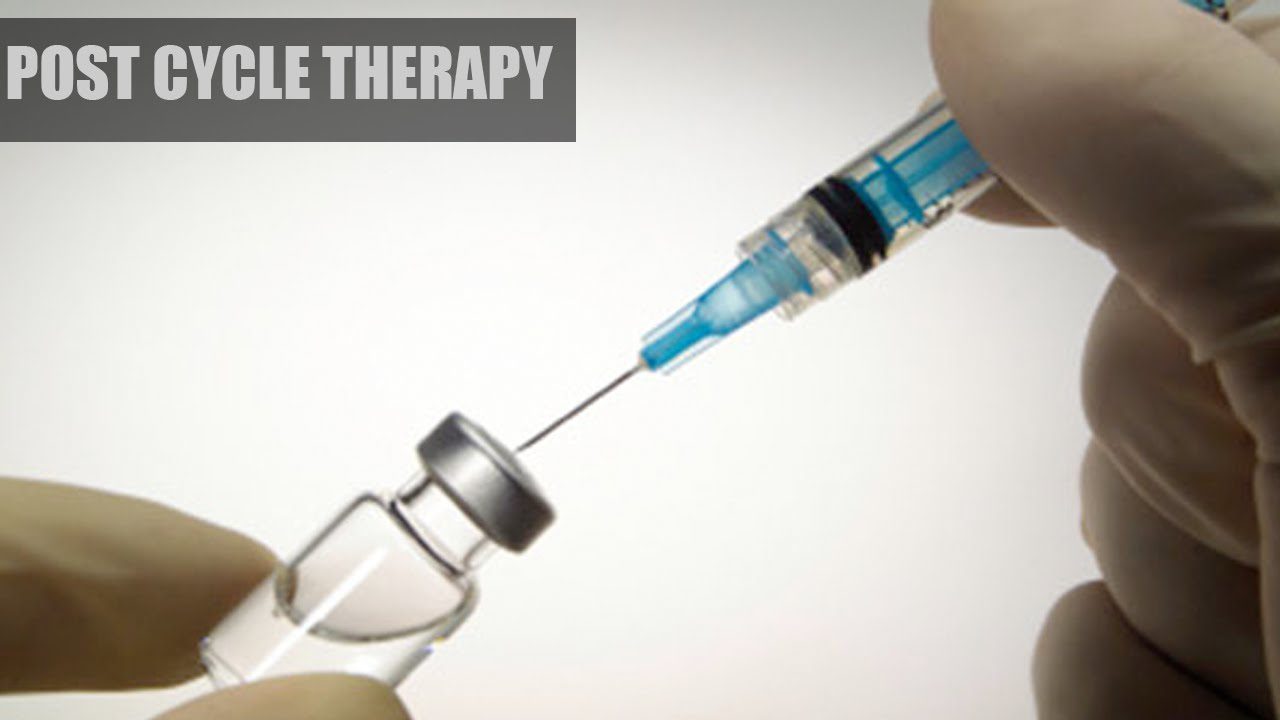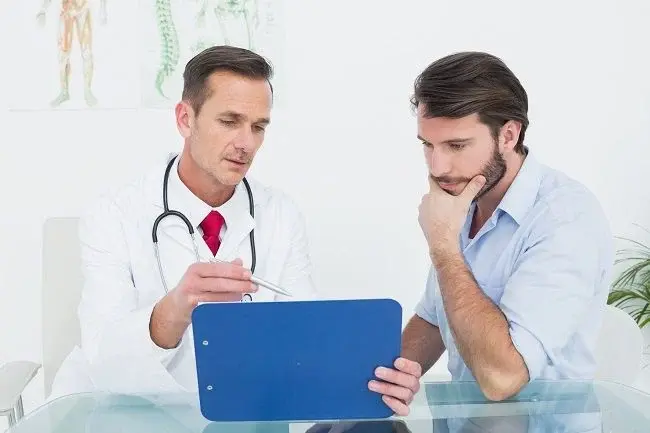Post Cycle Therapy (PCT) is an essential phase for individuals coming off a cycle of anabolic steroids or similar substances. The purpose of PCT is to restore the body’s natural hormonal balance, particularly by boosting testosterone production that might have been suppressed during the steroid cycle. Given the critical nature of this phase, there is a myriad of supplements on the market claiming to facilitate a successful PCT. However, it’s crucial to discern which supplements are backed by science and which ones are not.
The efficacy of PCT supplements can vary widely. Some ingredients in PCT products may help in stimulating natural testosterone production, while others may aid in controlling estrogen levels. It is imperative for users to have a clear understanding of how these supplements function and what health considerations they should keep in mind during PCT. Aligning with practical guidelines and consulting with healthcare professionals can greatly enhance the effectiveness of a PCT protocol.
Quick Summary
- Effective PCT supplements support the body’s natural hormonal recovery.
- The science behind PCT supplements indicates varying levels of efficacy.
- Health considerations and proper guidance are crucial during the PCT phase.
Understanding PCT: Fundamentals and Importance

Post Cycle Therapy (PCT) is a critical process for individuals who have been engaging in anabolic steroid cycles with the primary aim to restore hormonal balance and preserve gains.
Purpose of Post Cycle Therapy
Post Cycle Therapy serves to mitigate the negative impacts of exogenous anabolic steroids on the body’s natural hormone production. After a cycle of steroids, testosterone levels can be significantly suppressed as the body reduces its own production in response to high levels of synthetic hormones. PCT protocols are designed to stimulate the body’s return to its natural state of hormone production and maintain homeostasis. The key objectives of PCT are:
- Restoring natural testosterone production
- Preventing excessive conversion to estrogen
- Preserving muscle gains obtained during steroids use
- Ensuring overall health and recovery
The Physiology of Hormone Regulation
The body’s endocrine system is complex, involving numerous hormones that regulate vital functions, including testosterone and estrogen levels. Cycling anabolic steroids disrupts the balance of these hormones, and PCT aims to correct this. The therapy leverages medications that stimulate testicular function, such as selective estrogen receptor modulators (SERMs) and aromatase inhibitors, to prevent adverse side effects and promote the return to endogenous hormone production. PCT’s main targets include:
- Hypothalamic-Pituitary-Testicular Axis (HPTA)
- Prevention of gynecomastia (estrogen’s side effect)
- Minimization of sudden body composition changes due to hormonal fluctuations
Through carefully planned PCT, the body can recover and resume natural hormone levels, essential for long-term health and well-being.
References
- Evaluation of endocrine profile and hypothalamic-pituitary-testis axis in selective serotonin reuptake inhibitor-induced male sexual dysfunction
- Testosterone recovery after prolonged androgen suppression in patients treated with dual 5α-reductase inhibitor therapy
- Post-cycle therapy for performance and image enhancing drug users: A qualitative investigation
Evaluating PCT Supplements: Efficacy and Science

In assessing post-cycle therapy (PCT) supplements, it is critical to distinguish between the evidence-backed effectiveness of pharmaceutical options and the varying scientific support behind natural supplements. Rigorous examination of both categories is essential, with due consideration of potential side effects.
Natural PCT Supplements Catalogue
A variety of natural substances are marketed as testosterone boosters and PCT aids. D-aspartic acid is popular for its role in testosterone production, with some studies indicating a temporary increase in testosterone levels. Fenugreek and Tribulus terrestris are commonly included for their purported ability to support hormonal balance, although results from studies are mixed. Notably, Vitamin D3 and Zinc have been linked with maintaining healthy testosterone levels, supported by scientific research, whereas Mucuna pruriens and Luteolin show promise in modulating hormone levels. Indole-3-carbinol is investigated for its potential to modulate estrogen metabolism. The effectiveness of these supplements can vary.
- Key Components of Natural PCT Supplements:
- D-aspartic acid
- Fenugreek
- Tribulus terrestris
- Vitamin D3
- Zinc
- Mucuna pruriens
- Luteolin
- Indole-3-carbinol
Pharmaceutical PCT Options: Nolvadex and Clomid
Nolvadex (tamoxifen citrate) and Clomid (clomiphene citrate) represent the cornerstone of pharmaceutical PCT options. They are selective estrogen receptor modulators (SERMs) that stimulate the hypothalamus and pituitary gland to increase the natural production of testosterone. Clinical studies support their efficacy in helping to normalize hormone levels post-cycle.
- Key Pharmaceutical Options:
- Nolvadex (Tamoxifen citrate)
- Clomid (Clomiphene citrate)
Supplement-Specific Side Effects
While natural supplements are often considered safer, they are not without risks. For instance, high doses of Zinc can lead to nausea and vomiting. Tribulus terrestris has been associated with sleep disturbances and prostate issues. Nolvadex and Clomid can cause side effects ranging from mood swings to vision changes.
- Common Side Effects by Supplement:
- Zinc: Nausea, vomiting
- Tribulus terrestris: Sleep disturbances, prostate issues
- Nolvadex: Mood swings, vision changes
- Clomid: Mood swings, visual disturbances
References
- Study on Vitamin D3 and Testosterone: https://www.ncbi.nlm.nih.gov/pubmed/21154195
- Research on Zinc and Hormone Levels: https://www.ncbi.nlm.nih.gov/pubmed/16648789
- Analysis of D-aspartic Acid’s Effects: https://www.ncbi.nlm.nih.gov/pubmed/19860889
- Clinical Trials for Nolvadex and Clomid: https://www.ncbi.nlm.nih.gov/pubmed/640052
Hormonal Balance and Health Considerations During PCT

When undergoing Post-Cycle Therapy (PCT), maintaining hormonal balance is critical to health and recovery. It’s necessary to mitigate side effects such as gynecomastia and mood swings while promoting liver health and testosterone production.
Averting Estrogenic Complications
During PCT, the body’s hormonal environment fluctuates, which can lead to an increase in estrogen levels. This imbalance can cause gynecomastia, where male breast tissue swells. Aromatase inhibitors play a crucial role, as they hinder the conversion of testosterone into estrogen. Estrogen blockers are also used to prevent these complications, often containing grape seed extract, which may act as a natural aromatase inhibitor.
- Example of Aromatase Inhibitor: Anastrozole
- Example of Estrogen Blocker: Chrysin, coupled with grape seed extract
These compounds help to protect against excess estrogen while ensuring that testosterone levels are adequately restored.
Liver Health and Detoxification
The liver is the primary detoxifying organ, and its health is paramount during PCT. Certain supplements aim to support liver function and aid its recovery. Milk thistle is widely recognized for its benefits to liver health due to its active ingredient, silymarin. It is believed to have hepatoprotective properties, which can help rejuvenate liver cells.
Saw palmetto berry extract is also used for its potential in supporting prostate health, which can be beneficial post-cycle. It’s important for individuals to use PCT supplements that support liver health while minimizing potential liver strain.
- Liver Support Supplement: Milk thistle (standardized to 80% silymarin)
- Other Supportive Ingredients: N-acetyl cysteine, turmeric
By addressing estrogenic risks and underscoring the importance of liver health, these interventions help to facilitate a safer and more effective PCT.
References
- Aromatase Inhibitors: https://www.ncbi.nlm.nih.gov/pmc/articles/PMC3032474/
- Estrogen Blockers and Grape Seed Extract: https://www.ncbi.nlm.nih.gov/pmc/articles/PMC2728696/
- Milk Thistle and Liver Health: https://www.ncbi.nlm.nih.gov/pmc/articles/PMC3586829/
- Saw Palmetto and Prostate Health: https://www.ncbi.nlm.nih.gov/pubmed/11337315
Practical Guidelines for PCT Protocols

Post-Cycle Therapy (PCT) is essential for individuals who have completed prohormone or anabolic steroid cycles, aiming to restore hormonal balance and minimize potential health risks. This section provides a structured approach to designing effective PCT protocols.
Recommended Dosages and Cycles
Selective Estrogen Receptor Modulators (SERMs) such as Clomiphene Citrate are a cornerstone in PCT protocols. Typical dosages for Clomiphene Citrate range from 50 to 100 mg per day, starting within one week after ending a cycle and continuing for 4 to 6 weeks. This helps stimulate the production of luteinizing hormone, which in turn promotes testosterone production.
Human Chorionic Gonadotropin (hCG) may be used prior to SERM therapy to mimic luteinizing hormone and jumpstart testicular recovery. A common approach is to administer 250-500 IU every other day for 2-3 weeks.
| Substance | Initial Dosage | Maintenance Dosage | Total Cycle Length |
|---|---|---|---|
| Clomiphene Citrate | 50-100 mg per day | Adjust as needed | 4-6 weeks |
| hCG | 250-500 IU per dose | N/A | 2-3 weeks |
Integrating Supplements with Training and Diet
Incorporating natural ingredients into a PCT protocol can support recovery. Supplements like vitamin D, zinc, and omega-3 fatty acids may aid in hormonal balance and overall health. Individuals should align their nutrition and training with recovery goals—this means a diet rich in nutrients and a training regimen that is less intensive than during the prohormone cycle, to prevent overtraining and allow the body to heal.
Nutrition should focus on lean proteins, complex carbohydrates, and healthy fats to support muscle retention and provide adequate energy. Additionally, hydrating well and ensuring enough sleep are crucial for an effective PCT. Reducing the intensity and volume of training during PCT can help maintain muscle gains while preventing hormonal imbalances.
It is crucial for bodybuilders or athletes to plan their PCT in advance, taking into consideration the length and intensity of their prohormone cycles to tailor their post-cycle supplements, training, and dietary needs accordingly.
Frequently Asked Questions

What are the key ingredients to look for in an effective PCT supplement?
Key ingredients that should be present in an effective PCT supplement include selective estrogen receptor modulators (SERMs), aromatase inhibitors (AIs), and testosterone boosters. SERMs like Tamoxifen can help prevent estrogen-related side effects, while AIs like Anastrozole are used to limit estrogen conversion. Natural testosterone boosters such as Vitamin D, Zinc, and Fenugreek are also commonly included to support hormone levels.
Which PCT supplements are considered most effective post SARMs cycle?
Following a SARMs cycle, PCT supplements that contain SERMs, like Tamoxifen or Clomiphene, are often considered the most effective. These compounds help to restore the normal functioning of the hypothalamic-pituitary-gonadal axis, consequently boosting natural testosterone production and balancing hormones.
What do professional bodybuilders typically use for PCT?
Professional bodybuilders commonly use pharmaceutical-grade PCT medications prescribed by health professionals. They often include SERMs such as Clomiphene Citrate (Clomid) and Tamoxifen Citrate (Nolvadex), as well as AIs like Anastrozole (Arimidex) to manage potential estrogenic side effects and support hormonal recovery.
Is a PCT necessary following every cycle, and are alternatives like Clomid sufficient?
A PCT is generally necessary following every cycle of anabolic steroids or SARMs to help restore the body’s natural testosterone levels. Alternatives like Clomid can be sufficient for milder cycles, but they should be used as part of a well-planned PCT protocol, often in conjunction with other compounds, to ensure a comprehensive recovery.
References
- “The Role of Estrogens in Control of Energy Balance and Glucose Homeostasis” – https://www.ncbi.nlm.nih.gov/pmc/articles/PMC3684279/
- “Testosterone Boosters: Mechanisms of Action and Effectiveness” – https://pubmed.ncbi.nlm.nih.gov/2917954/
- “Pharmacological interventions in the aging male: a clinical perspective” – https://www.ncbi.nlm.nih.gov/pmc/articles/PMC4265577/
Dr. Grant Fourie, a specialist in male hormones, is based in Cape Town, South Africa. He provides comprehensive treatments for conditions related to low testosterone, such as erectile dysfunction, fatigue, and mood changes. His methods include hormone replacement therapy and other modern treatment options.
Contact me via email or phone to book personal appointment in my clinic: The Village Square, Cape Town - South Africa



